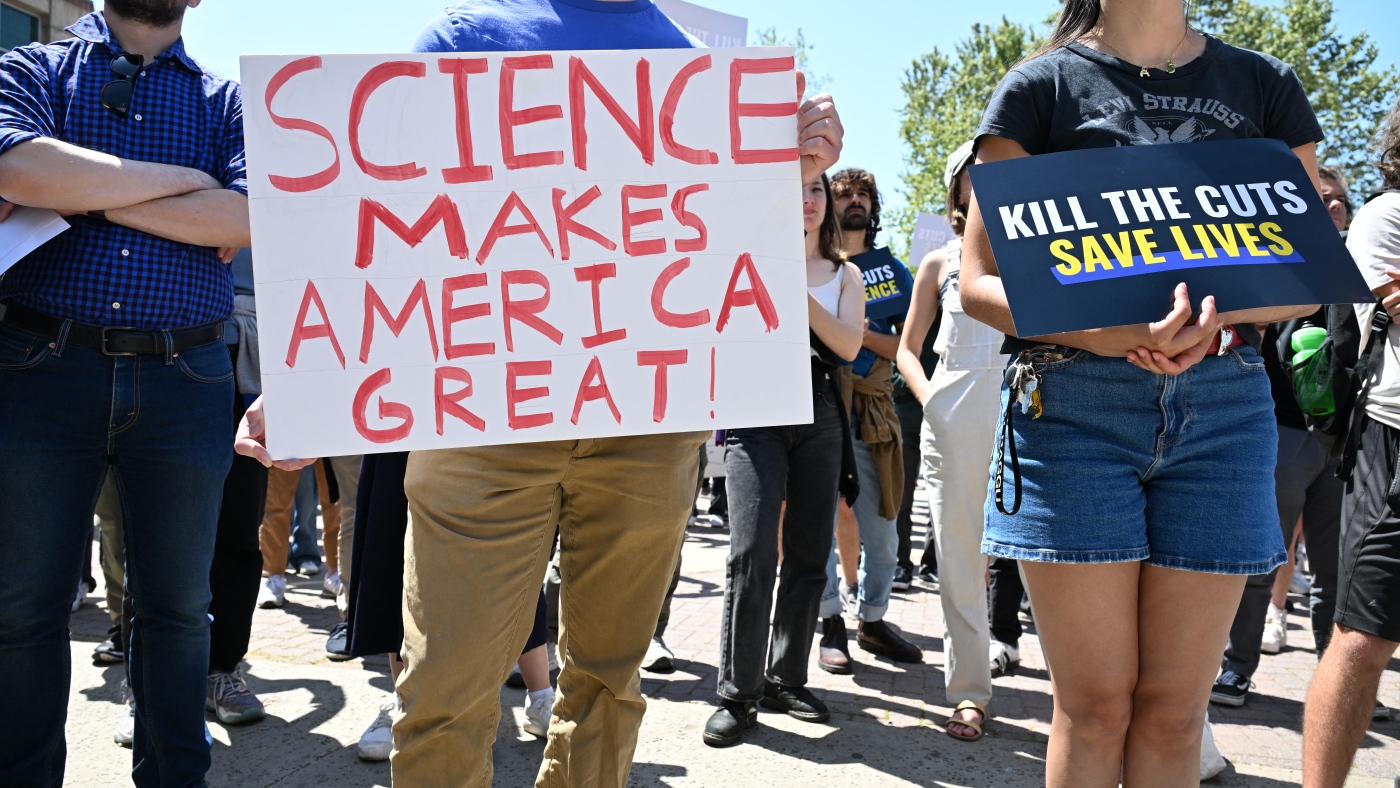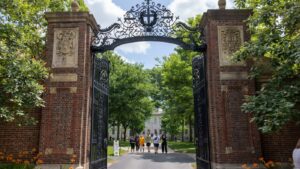A French University Offers a Haven for U.S. Scientists Amid Funding Cuts

Students, researchers and demonstrators rally during a protest against the Trump administration’s funding cuts on research, health and higher education at the University of California Los Angeles on April 8. Robyn Beck/AFP via Getty Images
Amid the backdrop of significant reductions in scientific funding by the Trump administration, a French university has positioned itself as a refuge for American researchers. Aix-Marseille University has introduced its “Safe Place For Science” program, which has attracted close to 300 applications from U.S.-based academics seeking a supportive environment for their research endeavors.
Since its announcement last month, the program has drawn a substantial response. Aix-Marseille University reported receiving 298 applications, with 242 deemed eligible. These applicants include 135 Americans, 45 individuals with dual nationalities, 17 French citizens, and 45 candidates from other countries. This initiative is part of the university’s effort to offer a “safe and stimulating environment for scientists wishing to pursue their research in complete freedom.” Learn more about the program here.
Éric Berton, the university’s president, expressed satisfaction with the initiative’s reception, stating, “I am pleased that this request for the creation of scientific refugee status has found both media and political traction.” The diverse pool of applicants includes researchers from prestigious U.S. institutions such as Johns Hopkins University, NASA, the University of Pennsylvania, Columbia, Yale, and Stanford. About 20 American scientists are expected to join the program starting in June.
Berton emphasized the importance of collective efforts in Europe to address the challenges facing scientific research. The Trump administration’s budgetary priorities, which include significant cuts to scientific and medical research funding, have intensified the scramble for top talent. Notably, federal funding cuts under the National Institutes of Health will deprive universities and research facilities of billions of dollars, impacting fields such as climate change and biomedical research. Read more about these cuts here.
Other European institutions are also aiming to attract scientists from the U.S. In a related development, France’s CentraleSupélec announced a $3.2 million grant to support American researchers. Meanwhile, the Netherlands is contemplating a fund to lure top international scientists, as discussed by Minister Eppo Bruins in a parliamentary letter. More on the Netherlands’ efforts.
These efforts appear to resonate with scientists considering relocating. A recent Nature survey revealed that over 1,200 scientists cited funding cuts as a reason for contemplating a move to Canada or Europe. Explore the survey findings.
Online discussion boards, reviewed by NPR, reflect similar sentiments among academics in the U.S., who are increasingly looking abroad for opportunities. See the discussion here.






